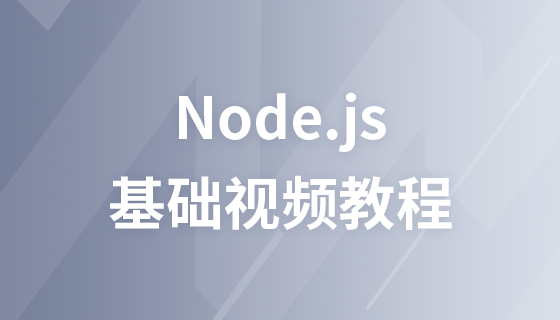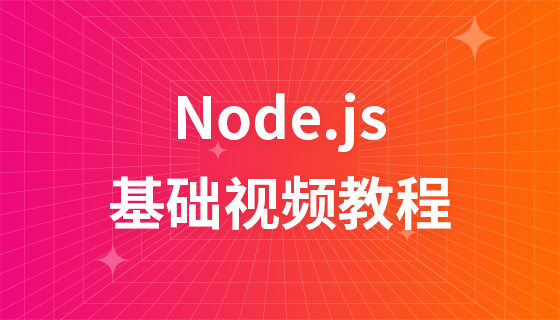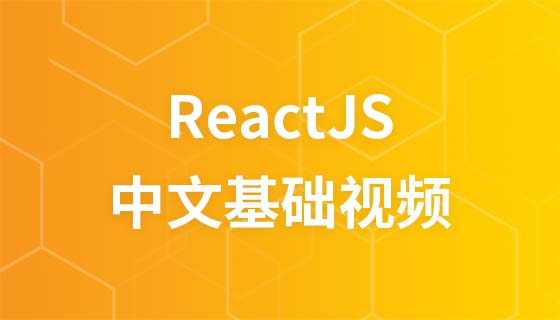

People who drive cars often don’t understand the structure of the car, but a deep understanding of the structure of the car may have an even more powerful effect
As the news ofvue3.xincreases, so does the discussion ofproxy. Compared withObject.defineProperty, what are the differences, advantages and applications ofproxy? This article will briefly introduce
Before talking aboutproxy, let’s reviewObject.defineProperty. As we all know,vue2.xand previous versions useObject.definePropertyto achieve two-way binding of data. As for how to bind it? Let’s simply implement it
function observer(obj) { if (typeof obj === 'object') { for (let key in obj) { defineReactive(obj, key, obj[key]) } } } function defineReactive(obj, key, value) { //针对value是对象,递归检测 observer(value) //劫持对象的key Object.defineProperty(obj, key, { get() { console.log('获取:' + key) return value }, set(val) { //针对所设置的val是对象 observer(val) console.log(key + "-数据改变了") value = val } }) } let obj = { name: '守候', flag: { book: { name: 'js', page: 325 }, interest: ['火锅', '旅游'], } } observer(obj)
Execute it in the browserconsole, it seems to run normally
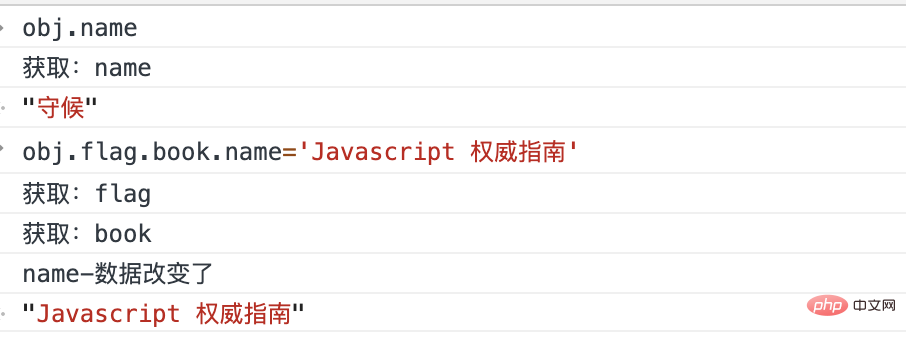
But in fact,Object.definePropertyThe problems are as follows
Problems 1. Deleting or adding object properties cannot be monitored
For example, adding an attributegender, because during executionobserver(obj)does not have this attribute, so it cannot be monitored. Deleted attributes cannot be monitored when
is added.
vueneeds to be operated using$set.$setObject.definePropertyis also used internally for operations
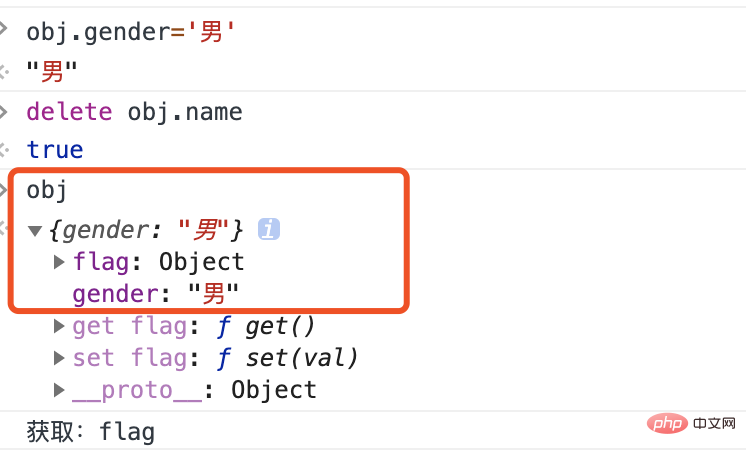
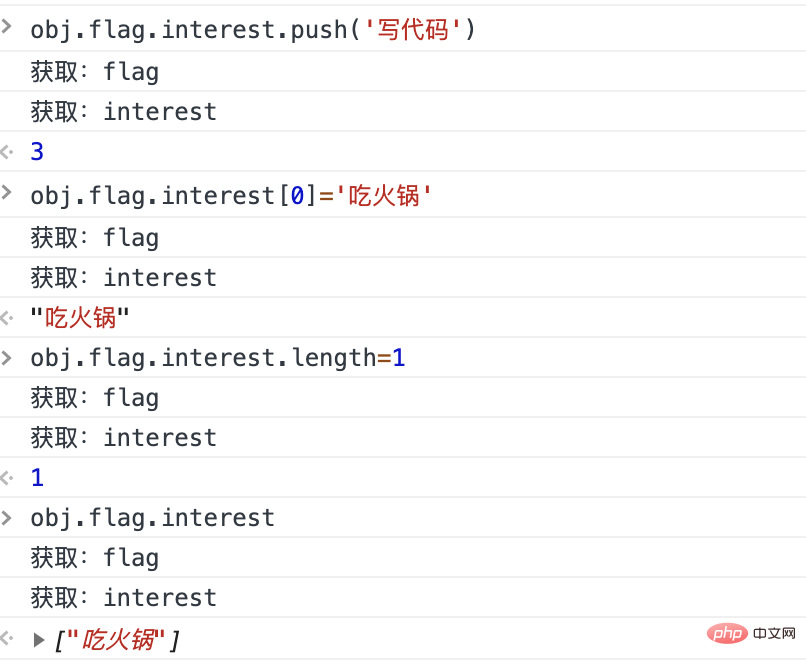
Object.definePropertyis used to hijack the properties of the object. If the object level traversed is relatively deep, it will take a long time and may even cause performance problems
proxy, the description on mdn is: Object is used to define custom behaviors for basic operations (such as attribute lookup, assignment, enumeration, function call, etc.)
proxyis easier to use thanObject.defineProperty, and it is much simpler. In fact That's it. Let's use proxy to rewrite the above code and try it
function observerProxy(obj) { let handler = { get(target, key, receiver) { console.log('获取:' + key) // 如果是对象,就递归添加 proxy 拦截 if (typeof target[key] === 'object' && target[key] !== null) { return new Proxy(target[key], handler) } return Reflect.get(target, key, receiver) }, set(target, key, value, receiver) { console.log(key + "-数据改变了") return Reflect.set(target, key, value, receiver) } } return new Proxy(obj, handler) } let obj = { name: '守候', flag: { book: { name: 'js', page: 325 }, interest: ['火锅', '旅游'], } } let objTest = observerProxy(obj)
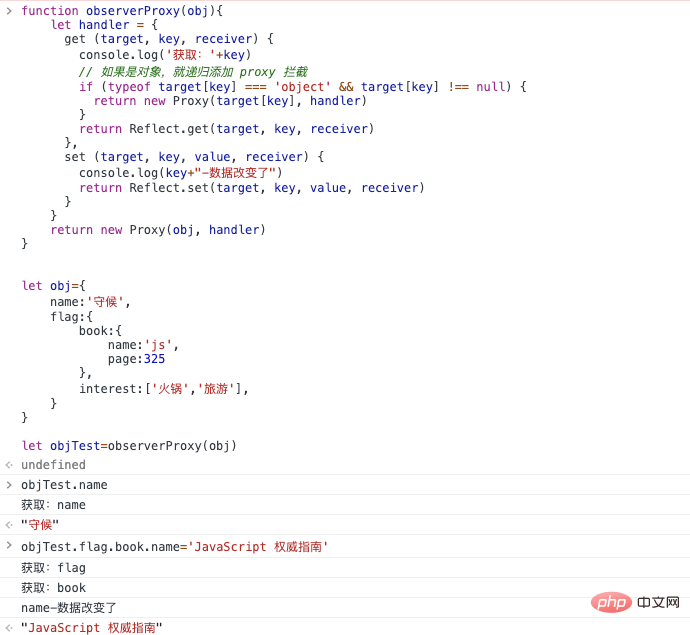 ##And, it can do
##And, it can do
Things that cannot be done, such as adding an attributegender, can monitor the
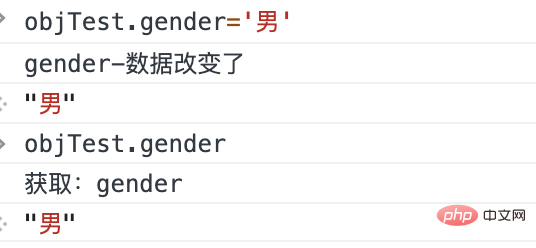 operation array, and can also monitor the
operation array, and can also monitor the
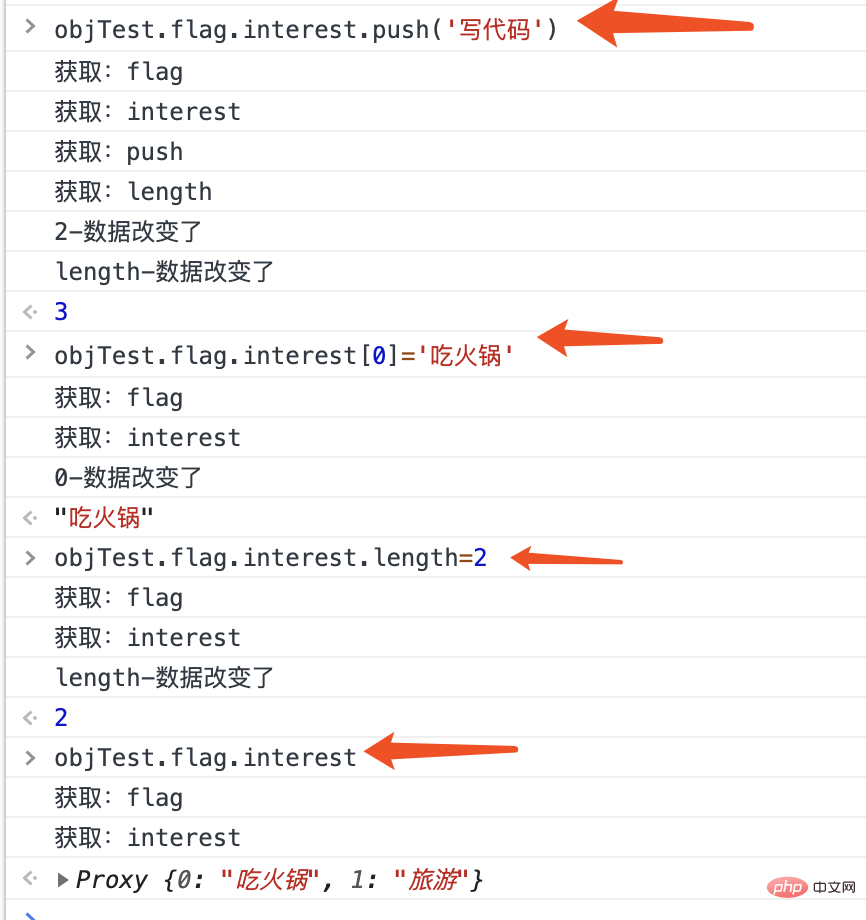 Finally, knock on the blackboard and briefly summarize the difference between the two
Finally, knock on the blackboard and briefly summarize the difference between the two
1.
Object.definePropertyWhat is intercepted is the property of the object, which will change the original object.proxyintercepts the entire object and generates a new object through new without changing the original object.2.
In addition to the above get and set, there are 11 other interception methods. There are many ways to choose Proxy, and you can also monitor some operations thatObject.definePropertycannot, such as monitoring arrays, monitoring the addition and deletion of object properties, etc.
, due to space limitations, I will simply list a few here, and more can be moved Follow my github notes or mdn.Seeing this, I already know the difference between the two and the advantages of
. But in development, what scenarios canproxybe used? Here are some situations that may be encountered
,slice(-1)and other APIs, when a negative number is entered, the last item of the array will be located, but on a normal array , and negative numbers cannot be used.[1,2,3][-1]This code cannot output 3. To make the above code output 3, you can also useproxy.<br>
在对表单的值进行改动的时候,可以在set里面进行拦截,判断值是否合法
let ecValidate = { set(target, key, value, receiver) { if (key === 'age') { //如果值小于0,或者不是正整数 if (value < 0 || !Number.isInteger(value)) { throw new TypeError('请输入正确的年龄'); } } return Reflect.set(target, key, value, receiver) } } let obj = new Proxy({ age: 18 }, ecValidate) obj.age = 16obj.age = '少年'
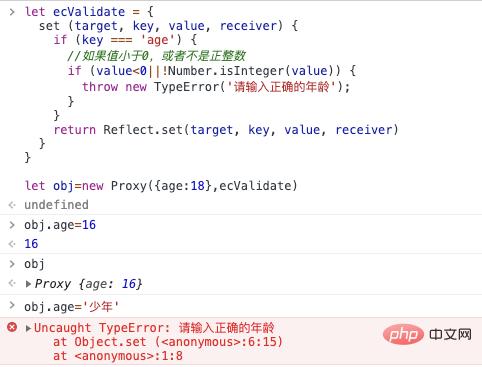
比如有一个需求,保证用户输入正确身份证号码之后,把出生年月,籍贯,性别都添加进用户信息里面
众所周知,身份证号码第一和第二位代表所在省(自治区,直辖市,特别行政区),第三和第四位代表所在市(地级市、自治州、盟及国家直辖市所属市辖区和县的汇总码)。第七至第十四位是出生年月日。低17位代表性别,男单女双。
const PROVINCE_NUMBER = { 44 : '广东省', 46 : '海南省' } const CITY_NUMBER = { 4401 : '广州市', 4601 : '海口市' } let ecCardNumber = { set(target, key, value, receiver) { if (key === 'cardNumber') { Reflect.set(target, 'hometown', PROVINCE_NUMBER[value.substr(0, 2)] + CITY_NUMBER[value.substr(0, 4)], receiver) Reflect.set(target, 'date', value.substr(6, 8), receiver) Reflect.set(target, 'gender', value.substr( - 2, 1) % 2 === 1 ? '男': '女', receiver) } return Reflect.set(target, key, value, receiver) } } let obj = new Proxy({ cardNumber: '' }, ecCardNumber)
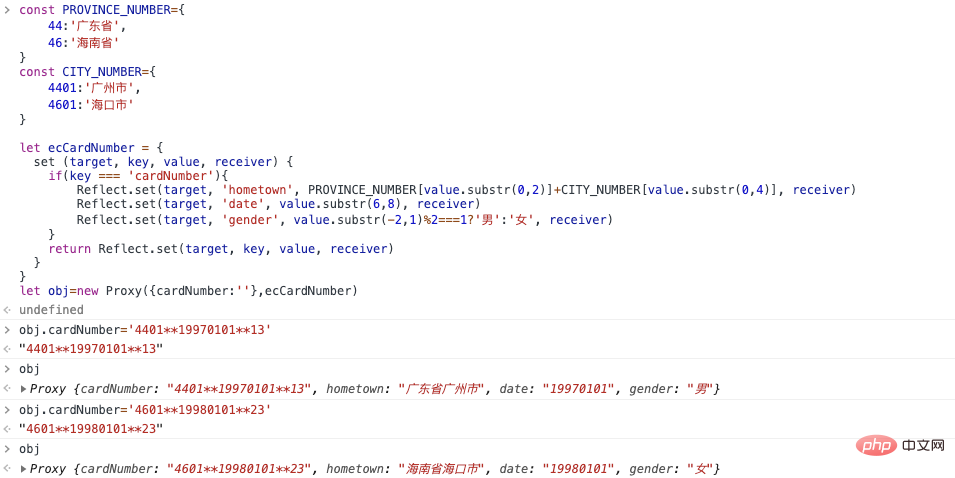
比如有一个需求,需要传时间戳给到后端,但是前端拿到的是一个时间字符串,这个也可以用proxy进行拦截,当得到时间字符串之后,可以自动加上时间戳。
let ecArrayProxy = { get(target, key, receiver) { let _index = key < 0 ? target.length + Number(key) : key return Reflect.get(target, _index, receiver) } } let arr = new Proxy([1, 2, 3], ecArrayProxy)
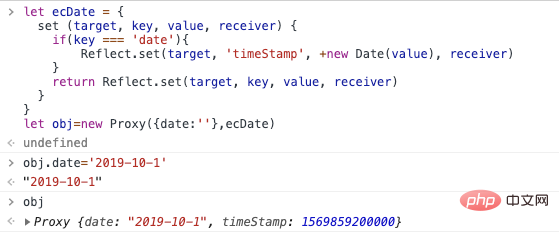
推荐教程:《JS教程》
The above is the detailed content of Advantages and usage scenarios of JS Proxy. For more information, please follow other related articles on the PHP Chinese website!
